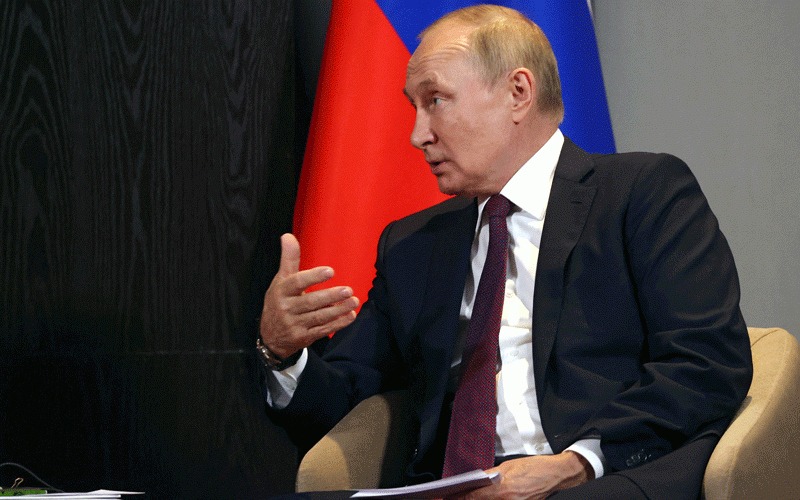
Over the past week, a lot has occurred in the world around us. The Zimbabwean elections, the Brics summit in South Africa, the passing on of Yevgeny Prigozhin head of Russia's private mercenary company Wagner Group, the indictment of former US President Donald Trump, and the ongoing political spat between the Economic Community of West African States (Ecowas) and the leader of the Niger coup are just a few of the recent events.
As these events developed they could be seen as separate from one another, but this time around, it seems like most of them are linked to one developing agenda: multilateralism. The Western bloc’s hold on world politics is being openly challenged and diminishing.
On August 24, a three-day Brics (Brazil, Russia, India, China, and South Africa) summit across Limpopo concluded with the adoption of the Johannesburg II declaration by all participating countries. The declaration, which welcomed six more members to join the bloc by January of the following year, called for an inclusive multilateralism as was expected. The new members include Saudi Arabia, the United Arab Emirates, Ethiopia, Argentina, Egypt and Iran. With this latest achievement, the Brics group now accounts for almost 50% of the world's population and close to 40% of the global economy.
The summit's outcome reinforced and reiterated the typical reservations non-Western countries have about how the West has handled international political and financial matters. The summit's resolution voiced concern over the use of “unilateral punitive measures,” or sanctions by the Western bloc against nations that they believe do not share their wishes and values. The summit believed that this abusive behaviour violated the spirit of the UN charter. It demanded changes to the world financial system and governance structure.
These demands along with others, have always been on the table. The proposals for a greater use of alternate currencies in global trade rather than the US dollar, however, will be the largest game changer. Because of its significance in the trade of international oil, the US dollar has been a widely used currency.
The emergence of alternative currencies will significantly undermine Western dominance in international trade and politics, especially when several of the top oil-producing nations join the Brics. If that eventually occurs, it will mean that global trade can now take place without the West’s involvement, which will result in new economic prospects and trading partners for emerging nations.
Meanwhile, news of Yevgeny Prigozhin, the head of the Russian private mercenary company, Wagner Group, dying in a plane crash emerged from eastern Europe. Considering that Prigozhin has already been reported dead twice, some people have been cautious.
Nevertheless, because of the extent of power he possessed in the bigger picture of politics, the news of his potential demise shocked the entire world. Before what appeared to be Wagner's uprising against Vladimir Putin of Russia two months ago, Prigozhin was viewed as Putin’s game changer in reducing the influence of the West on the world stage.
- Lukaku becomes the most expensive player ever
- Lukaku becomes the most expensive player ever
- Ukraine's Zelenskiy warns Europeans to brace for bleak winter
- Ben Stiller and Sean Penn latest Americans banned from Russia
Keep Reading
For the past 18 months, Russia has managed to stand its ground against a united Western bloc in the war in Ukraine. It is doing so against 54 countries that are backing Ukraine and these include the most powerful in the world. Putin is now convinced that his country is more than just a superpower but a global game changer.
With that in mind, his next step was straightforward: he simply brought African nations that had endured prolonged European colonial conditions into his fold. He was not simply interested in numbers and political clout, he also had the supply chain for African resources going to Europe in mind to sabotage.
The West might not have seen that coming until the Niger coup happened. Today Ecowas is divided over whether to succumb to Western pressure and intervene in Niger or to listen to the wishes of the people of Niger.
Ecowas countries are also facing domestic pressure from their citizens not to intervene. The West is dangling dollars as usual.
But it is not only Niger. There is Burkina Faso and other unstable countries that are unsettling European supply chains. Putin has been using the Wagner Group to advance this agenda and he may be getting there slowly.
These developments are unfolding when the US is at its weakest point in recent years. A Pew Research Centre survey concluded that most Americans see their country’s influence in the world as getting weaker. That Donald Trump, despite facing several legal challenges, still dreams of bouncing back as the US president shows the dearth of depth in leadership in the Republican Party, while the Democrats lost the game after the departure of Barak Obama.
When these points are put together plus an expeditious implementation of the Brics commitments, who can fault Putin for thinking that it is now his time to rule the world from behind and that he is the major driver of the gradual fall of the West which is paving way for the rise of multilateralism?







